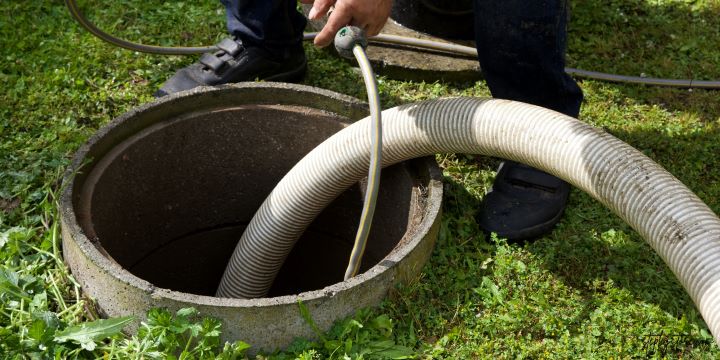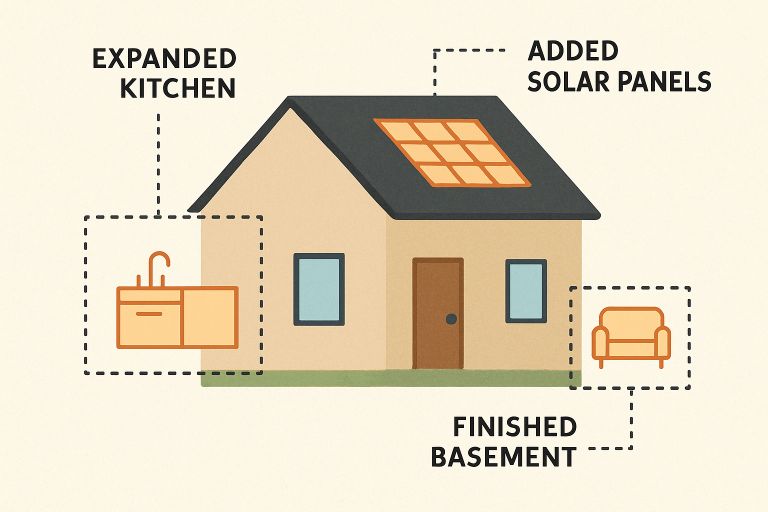Key Takeaways
- Understanding the importance of regular septic tank maintenance.
- Steps to ensure a healthy and efficient septic system.
- The impact of using proper products and avoiding harmful substances.
- How to spot early warning signs of septic system issues.
Table of Contents
- The Importance of Regular Maintenance
- Top Tips for Septic System Maintenance
- Choosing the Right Products
- What to Avoid Flushing Down the Drain
- Early Warning Signs of System Issues
- When to Call a Professional
- Maintaining Your Septic System and Home Value
The Importance of Regular Maintenance
Regular septic system maintenance is crucial to ensuring its longevity and efficiency. A well-maintained septic system prevents costly repairs and protects the environment from contamination. One essential aspect of this maintenance is scheduling septic pumping services every three to five years to remove excess solids that can clog the system. Solid waste can accumulate without regular pumping and eventually block the pipes, leading to sewage backups and other unpleasant issues. Regular maintenance also minimizes the risk of environmental pollution, which can harm local water sources and wildlife. Regular maintenance should not be neglected, as this might result in serious problems, including sewage backups and system failure. Regular septic system repair and maintenance keeps it in optimal operating condition, protecting your land and the environment. By devoting time and effort today, you can provide your family with a clean, healthy living environment and spare yourself the worry and cost of emergency repairs.
Top Tips for Septic System Maintenance
- Regular Inspections: Schedule inspections to catch potential issues early. A professional can identify signs of trouble before they escalate. Inspections often involve examining the tank, pipes, and drain field for any damage or clogs that could compromise the system’s efficiency.
- Efficient Water Usage: Reduce water usage to prevent overloading the system. Simple habits like fixing leaks and installing water-efficient fixtures can make a big difference. Excessive water usage can overwhelm the septic system, preventing the solid waste from settling and adequately breaking down.
- Proper Landscaping: Keep trees and shrubs away from the septic tank and drain field to avoid root damage. Roots can infiltrate and clog the system, leading to costly repairs. When planting near your system, choose shallow-rooted plants to minimize the risk of root intrusion.
Choosing the Right Products
Opt for septic-safe products, such as biodegradable and non-toxic cleaning supplies. Products labeled septic-safe are designed to minimize damage to your system. These products break down more efficiently and reduce the risk of clogging and contamination. Using harsh chemicals and non-biodegradable products can harm the beneficial bacteria in your septic tank, disrupting the natural waste breakdown process. Regular household items such as toilet paper, detergents, and shampoos should also be carefully chosen. Always look for labels indicating that the products are safe for septic systems. By choosing appropriate products, you can protect the delicate balance within your septic tank and ensure its smooth operation.
What to Avoid Flushing Down the Drain
Anything that might harm or clog the septic system should not be flushed. Avoid everyday goods such as harsh chemicals, diapers, feminine products, and non-biodegradable materials like plastic. These materials can upset the tank’s bacterial equilibrium, impeding the waste’s natural decomposition. Grease and oil can harden and obstruct the drain, so avoid dumping them down. Here’s a detailed list of things to avoid. Teaching all household members what should and shouldn’t be disposed of down the drain may help maintain the integrity of your septic system and avert expensive problems.
Early Warning Signs of System Issues
Be aware of early warning signs that may indicate problems with your septic system. Symptoms include slow drains, unpleasant odors, and unusually green, lush grass over the drain field. Addressing these signs early can save you from more extensive repairs later on. If you notice any of these signs, take immediate action. Ignoring them could lead to severe system failures and health hazards. Slow drains and gurgling sounds from plumbing fixtures can signal that your septic system is struggling and might need professional intervention to diagnose and fix the underlying problems.
When to Call a Professional
While routine maintenance may avoid many problems, some situations require expert assistance. If your problems continue even after routine maintenance, it is recommended that you contact a professional septic service. They can identify and resolve issues that go beyond basic upkeep. Professionals have the right gear and skills to deal with intricate septic problems. For example, if you see wastewater collecting on your lawn or unpleasant smells coming from the tank area, it’s time to call in the professionals. Experts can offer comprehensive examinations and suggest the best course of action. Ignoring these indicators might result in more severe problems that need significant and costly repairs that could have been prevented with early intervention.
Maintaining Your Septic System and Home Value
Maintaining a healthy septic system may raise the value of your house. Taking good care of the system may guarantee that it stays functioning and avoids contamination, which can be a significant selling factor for potential purchasers. A well-maintained septic system positively reflects the property’s general maintenance. Regular upkeep not only reduces costs over time but also increases the appeal of your house. An aesthetically pleasing property with a well-maintained and dependable septic system will attract more potential purchasers. Proving that the septic system has been well-maintained with routine pumping and inspections may bolster buyers’ trust in the general condition and worth of the property.







